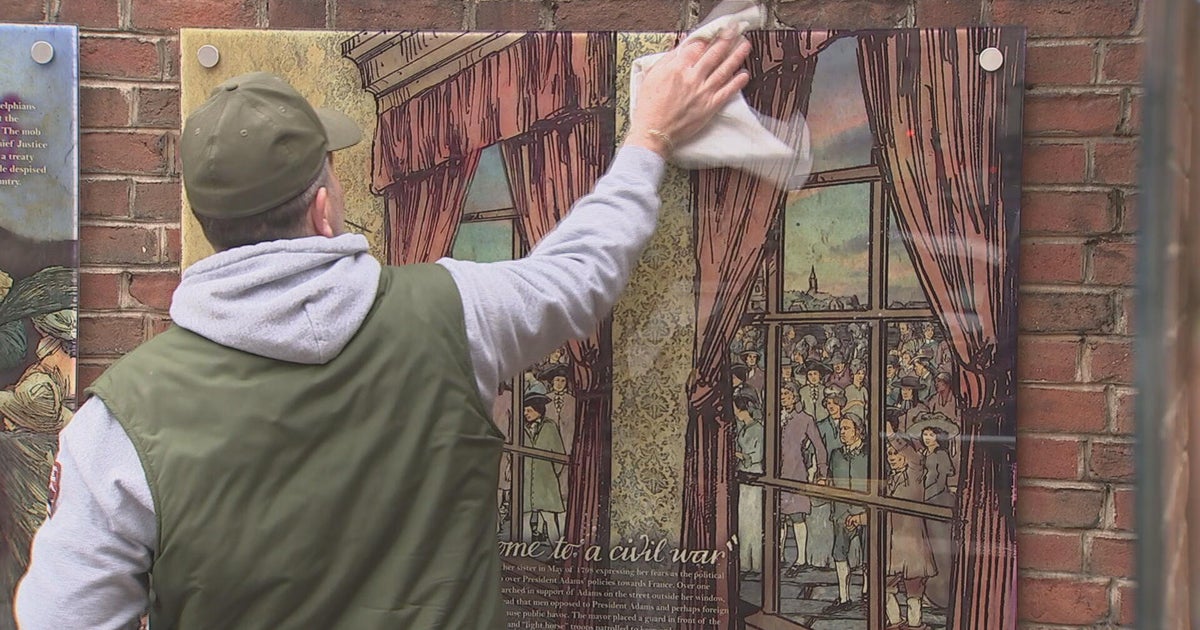Bounced Candidates Sue Over Signature Requirement
CHICAGO (CBS) -- A group of candidates -- three for Chicago mayor, one for clerk and one for alderman -- filed a federal lawsuit Monday claiming the requirement of 12,500 petition signatures to get on the ballot is unconstitutional.
The suit was filed by candidates Jay Stone, Fredrick K. White, Frank L. Coconate, Denise Denison and William "Dock" Walls. Defendants are listed as Chicago Board of Elections Chairman Langdon Neal, and Commissioners Richard Cowen and Marisel Hernandez.
Stone, White and Walls were candidates for mayor. Coconate was a candidate for city clerk and Denison for 18th Ward alderman. All were kicked off the ballot for
Stone, White and Coconate filed less than 12,500 signatures by the Nov. 22 deadline, the suit says. Stone filed 250 signatures, White about 10,200 and Coconate just 61, according to the suit.
Because they did not file the required number of signatures, the Board of Elections is not allowing their names to appear on the Feb. 22 ballot.
The plaintiffs ask that the court force the Board of Elections from to include White, Fredrick and Coconate on the ballot.
Walls secured at least 12,500 signatures and will be on the ballot for mayor, but he is a plaintiff because "he was burdened" by having to secure the signatures, the suit claims.
The suit claims the requirement to get on the ballot for governor requires only 5,000 signatures. "It takes 2.5 times more signatures to get on the ballot for city clerk and treasurer than it does to run for governor. Additionally, Houston has the closest population to Chicago. A Houston candidate submits zero signatures for mayor if the candidate pays a $1,250 filing fee. If the Houston candidate for mayor does not pay a filing fee, the signature requirement is 587 signatures," according to the complaint.
The suit also noted that "some candidates for alderman are required to submit more signatures than a candidate for mayor of cities that are 15 times larger in population. For example, San Jose (California) with a population of 948,279 requires 50 signatures to get on the ballot for mayor. San Jose's signature requirement is lower than the number of signatures to run for alderman in every ward in the city of Chicago."
The suit argues the signature requirement "unconstitutionally impairs the First Amendment rights of candidates such as the Plaintiffs' Stone, White and
Coconate who are unable to secure 12,500 signatures."
Additionally, the statute's 12,500 signature requirement "is not justified by any compelling state interest," and "is so high that it effectively bars the
development of candidacies of unknown persons."
Stone, a hypnotherapist and the son of Ald. Bernard Stone (50th), has also posted on his website that he believes the number of signatures required for the mayoral ballot is "10 to 25 times higher than it should be. Limiting political competition is the one and only reason for the excessive number of signatures to run for mayor of Chicago."
Stone writes on his website that he decided to collect only 350 signatures as "the result of an analysis of other cities' ballot requirements."
As some candidates try to get themselves reinstated on the ballot, others are trying to get mayoral frontrunner Rahm Emanuel off.
Emanuel rented out his Ravenswood neighborhood home while serving as President Obama's top aide in Washington. That triggered 32 challenges to Emanuel's nominating petitions, on the grounds that Emanuel did not maintain a residence in Chicago for a year before the election as required by state law.
Rob Halpin, Emanuel's tenant at the house, refused to leave when Emanuel returned. He later decided to run for mayor himself, but withdrew on Monday on due to what an attorney said was fraudulent petition signatures that Halpin blamed on those who collected them.
The Sun-Times Media Wire contributed to this report.







